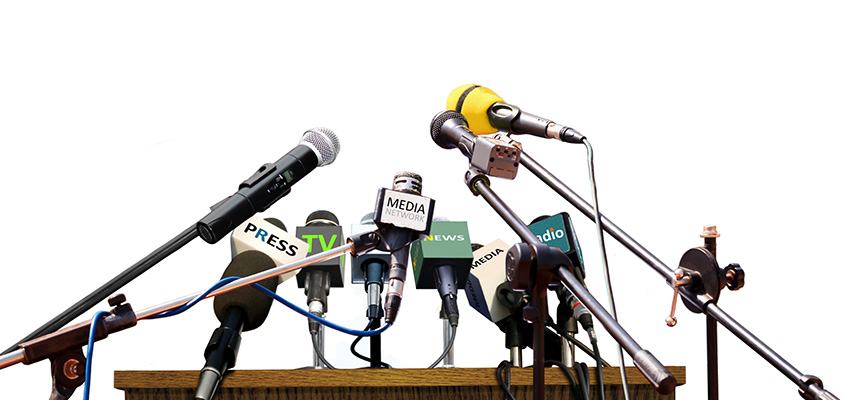
I’ve spent more than half my life working as a liaison between my clients and the media. The bulk has come during my tenure at Communication Links where our interactions are primarily with those in the golf, travel and luxury lifestyle media.
Until recently, clients were nearly always happy to respond to media queries. However lately, because of the specter of the Covid-19 outbreak and the economic downturn, I’ve noticed a change. Today, clients are just as often nervous or worried when a media member contacts them.
I get it. There’s a bunker mentality in society at large. People want to keep their heads down until things return to normal. They are afraid the media are out looking for dirt to get them in trouble or hurt their business. While that sometimes happens, thankfully, it is not common in the golf industry.
Below are five things I’ve learned that will help golf operators, or anyone for that matter, respond when the media calls:
1. It’s a Relationship
To effectively work with the media, you must develop a relationship. Like all relationships, there’s give and take, and you need to respect this. If the media is calling you, they are looking to gather information so they can do their jobs. Ignoring these requests wastes their time. Always return their phone calls or respond to their emails promptly. You can decline the interview if you truly are uncomfortable with the topic. But, never leave them hanging. It’s unprofessional and puts a bad taste in their mouths.
2. Watch What You Say
Even though the media my clients most often encounter are not the gotcha-type, they are looking for information and will report what you say. Be precise with your language, and don’t expect the media to “make you look good.” That’s not their job. If you consent to be interviewed, answer questions as clearly and simply as possible, never talk down a competitor, never say anything you don’t want to see published, and don’t offer guesses about things you don’t know. If any question makes you uncomfortable, politely tell the interviewer you either do not know the answer or prefer not to comment. Finally, don’t be shy about asking questions to make certain the reporter understands what you have said. They don’t know your business as well as you do, and it’s much easier to correct a misunderstanding before a story is submitted. However, never ask to review a story prior to publishing. This is considered extremely bad form and will ruin any potential relationship.
3. Keep Your Guard Up
One of the most dangerous parts of an interview is immediately after it has concluded. An interviewer and interviewee can establish a familiarity over the course of a conversation. This can lead the interviewee to speak a bit more freely than prudent. Let me illustrate.
Some time ago I hosted a media event for a client. Afterwards, I noticed my client having a conversation with three of the media guests. As I approached, I heard him finish a story detailing some off-color behavior by a well-known celebrity. It was juicy stuff. I pulled the media aside and asked them not to use it. Two didn’t. One did, but he ran it unattributed, which all but certainly saved my client’s job.
Even though the media aren’t typically out to get you, always remember my second point – especially AFTER the interview.
4. Don’t Take it Personally
The media’s job is to present facts and objective opinions to their audiences. If they get the facts wrong, you can ask for a correction. Sometimes you’ll get it. But you cannot ask them to revise an opinion. If you think your golf course is the best in the state and a media member does not, don’t get upset. Some people like chocolate. Some like vanilla. That’s just how it goes.
The very best thing you can do in such a situation is to politely ask what you could have done differently to make the experience better. If asked respectfully, most will happily tell you. You don’t have to take their advice, or even agree with it, but asking will give you a better perspective, and will further a relationship that may be beneficial down the line.
5. Keep the Relationship Going
Once you’ve interacted with a member of the media, stay in touch. Send information you think he or she will find helpful or interesting. Offer invitations to events or activities they will enjoy. Or simply drop an occasional note to say hello. People like to be appreciated, and you will be more likely to get a response when it’s your turn to ask something of them. Besides, good friends can be hard to find. I’ve made some of my best friends and have enjoyed some of my greatest memories thanks to my job. And, it all started with picking up the phone when the media called.
If you’d like to learn more about how to respond to media queries, contact us by phone at 480-348-7540 or by email.
Jerry Rose, Vice President
